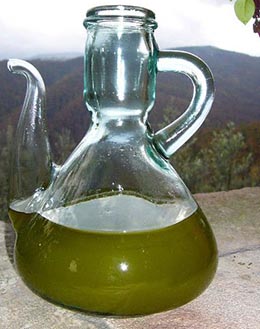The Many Benefits of Olive Oil
Olive oil is not just a staple in Mediterranean cuisine; it is also a highly versatile and nutritious oil that offers numerous health benefits. From its selection and storage to its culinary uses and safety profile, olive oil has a lot to offer. Let’s explore the world of olive oil and discover why it should be a part of your everyday diet.
Selection and Storage
When selecting olive oil, it is essential to choose high-quality, fresh, cold-pressed oil made from ripe greenish-yellow fruits. Extra virgin olive oil, in particular, is considered the purest and highest-graded oil, rich in antioxidants and flavorful. Look for terms like “best before,” “virgin,” and “native cold-pressed” to ensure authenticity. Store olive oil in a tightly sealed container in a cool, dark place away from heat and light to preserve its quality.
Culinary Use
Olive oil is a popular choice for cooking and dressing salads due to its rich flavor and health benefits. It can be used in a variety of dishes, such as Andalusian salad, eggplant fry, and olive tapenade. These recipes showcase the versatility of olive oil and its ability to enhance the taste of different foods.
Serving Tips:
- Andalusian salad: A refreshing mix of tomatoes, cucumber, onion, bell pepper, and thyme herb with extra-virgin olive oil.
- Eggplant fry: A delicious Italian dish made with olive oil, tomatoes, onions, capers, black pepper, and salt.
- Olive tapenade: A traditional French dip made with black olives, walnuts, onion, garlic, pepper, and lemon juice.
Safety Profile
Olive oil is safe for daily consumption and does not contain any allergens present in other oils. It is a healthy option for cooking and dressing foods, making it a popular choice among health-conscious individuals.
FAQs
Q: Is olive oil suitable for deep-frying?
A: Yes, olive oil is suitable for deep-frying due to its high smoke point and rich flavor. However, it is important to use the appropriate grade of olive oil for deep-frying to avoid compromising the taste of the dish.
Q: Can olive oil be used as a substitute for butter in baking?
A: Yes, olive oil can be used as a substitute for butter in baking to create healthier and lighter baked goods. It is important to use the appropriate amount of olive oil to achieve the desired texture and flavor in baked goods.
Conclusion
Olive oil is more than just a cooking oil; it is a versatile and nutritious ingredient that offers a multitude of health benefits. From its antioxidant-rich properties to its rich flavor profile, olive oil is a must-have in any kitchen. By choosing high-quality olive oil, storing it properly, and incorporating it into your cooking, you can enjoy the many benefits that this Mediterranean treasure has to offer.
